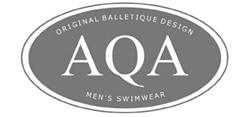SME: Technology counts
Date posted: 21.10.2015 | Author: Harry BovensmannSME: Technology counts – as a small business owner, you are spoilt for choice when it comes to affordable technology to help you run an efficient, responsive and productive company. Yet choosing the right software and hardware for your business can be challenging when you’re working with a limited budget.
1. Start with your business needs, not the technology
The point might sound obvious, but many small business owners focus more on the brand or the technology they want to buy than on their business needs. Here are some issues to consider when considering a new IT product or service:
• Does my industry have specific requirements, for example, robust job costing or point of sale?
• How big is my business? Do I really need the most expensive and complex solution?
• How fast is my business growing and what will my future requirements be?
• What features do I need? Basic bookkeeping and cash flow management? Or detailed business intelligence?
• What is my budget?
• What are my customers’ requirements? Will they expect that they will be able to communicate with me on social media? Will they want to shop online?
2. Look at your online options
These days, you don’t necessarily need to set up your own servers or buy software licenses. Instead, you can use free or affordable online offerings such as DropBox, Google Mail, and Office 365 for many of your business needs. You can even buy your accounting and payroll software as an online service for an affordable monthly cost. There is no more need to invest a lot of cash upfront in technology.
3. Going mobile
Mobility can have huge benefits for your business, and most SMEs know it. According to the Sage Business Index 2014 for South Africa, 50% of South African businesses use a tablet or smartphone to communicate with customers, suppliers or colleagues. And two-fifths say they spend more than a quarter of their working day on mobile devices.
You can give employees access to applications and data from any internet connected device, so they can be productive wherever they are. These days, most popular business applications offer slick mobile apps that enable you and your employees to keep working on the road.
4. Functionality, not frills
Many SMEs make the mistake of buying the Rolls Royce when they need the Toyota. So, be wary of buying an expensive solution with bells and whistles you may never use — rather look for something that is modular and that allows you to add in features if or when you need it. And make sure that the software takes care of basics — like local tax and labour law requirements.
5. Look at the supplier’s track record
It’s important to have good technology, but also check on issues like the support infrastructure, customer satisfaction, and local expertise when you buy an IT product or service. Some elements to think about:
• Does the vendor have local reference sites and experience in my industry?
• Is the provider familiar with the needs of smaller businesses?
• How good is its support and service?
• Does it give me flexible payment and deployment options, for example, a choice of on-premises installation or cloud solutions?
• Does the provider support modern needs like the cloud and mobility?
• Does the vendor understand the local market and localise its product for South African needs?







